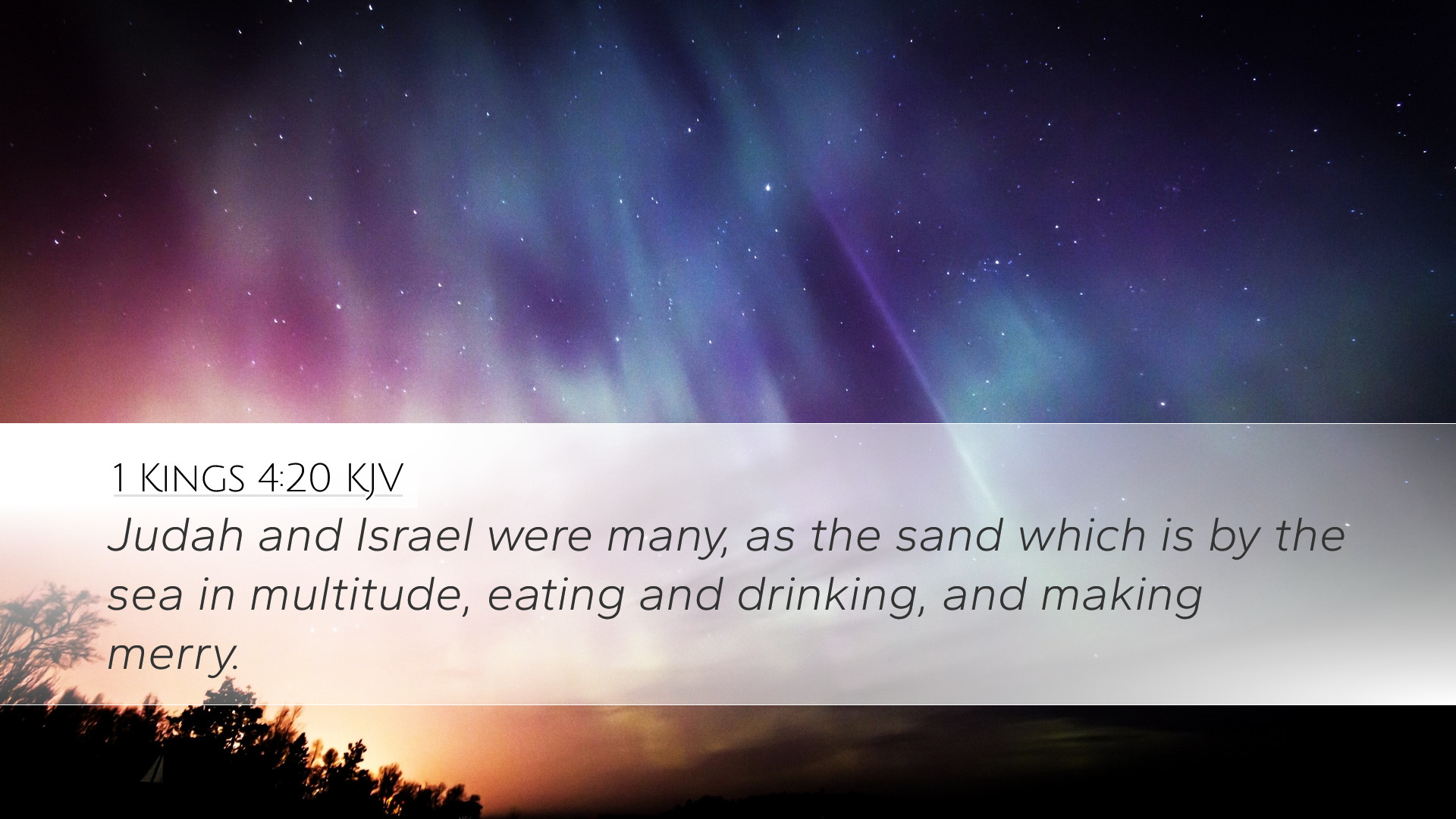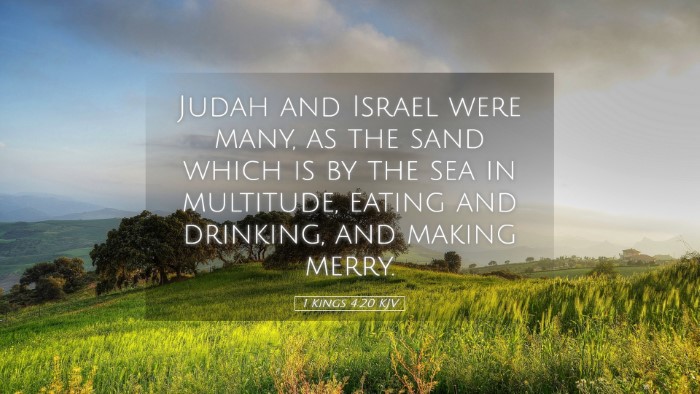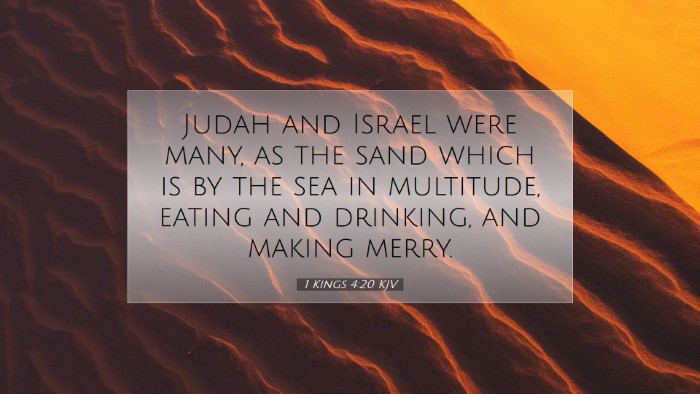Commentary on 1 Kings 4:20
Bible Verse: "Judah and Israel were many, as the sand which is by the sea in multitude, eating and drinking, and making merry."
Overview
This verse from 1 Kings encapsulates a period of prosperity and peace during the reign of King Solomon. The verse acts as a summary of the state of the nation under his rule, reflecting both the population growth and the communal joy experienced by the people.
Population and Prosperity
Matthew Henry notes that the comparison of the people to "the sand which is by the sea" highlights their vast numbers and blessings. This metaphor signifies not just quantity but also the nature of their lives—full of vitality and energy. Wealth and abundance were evident, suggesting that Solomon's governance had resulted in a flourishing society.
- Population Growth: The profusion of people indicates the fulfillment of God's promises to Abraham regarding his descendants (Genesis 22:17).
- Economic Stability: The phase described suggests economic prosperity, which led to a stable and contented populace.
Cultural Context
Albert Barnes provides insight into the cultural and social dynamics prevailing during this time. The mention of "eating and drinking, and making merry" presents a time of celebratory communal life, likely characterized by feasts and gatherings that signify unity among the tribes of Israel, without the societal pressures that often accompany times of war or famine.
- Feasting as Community: Such gatherings allow for shared experiences, reinforcing social bonds and fostering a sense of community.
- Spiritual Implication: These joyous occasions would also often involve religious observances, as celebration in the ancient Hebrew culture typically included worship.
Contrast with Future Events
Adam Clarke points to the irony embedded in this expression of jubilation. While the current state is one of peace and plenty, Clarke hints at the foreshadowing of future divisions within Israel. As the narrative of 1 Kings progresses, the unity illustrated in this verse will deteriorate due to political strife, idolatry, and the eventual splitting of the kingdom.
- Foreshadowing Division: The joy of this period contrasts sharply with the eventual civil strife that will ensue after Solomon's reign.
- Theological Reflection: This serves as a reminder of the cyclical nature of human governance and divine oversight. Prosperity can precede decline, emphasizing the need for faithfulness to God.
Theological Implications
The verse invites a deeper theological reflection on God’s provision and the nature of covenant life. The well-being of Judah and Israel is not merely a political statement but a theological reality that encompasses God's faithfulness to His covenant people.
- Covenant Faithfulness: The flourishing of the people serves as evidence of God’s promise being realized through Solomon’s wisdom and leadership.
- Life as a Divine Gift: The phrase "eating and drinking" underscores the perspective of enjoying life as a gift from God, reflecting a life lived in gratitude and fellowship.
Conclusion
1 Kings 4:20 offers a richly textured portrait of a pivotal moment in Israel's history. Through the lenses of esteemed commentators like Matthew Henry, Albert Barnes, and Adam Clarke, we gain insights into the social, cultural, and theological dimensions of this verse. It serves as a reminder of God's provision, the importance of unity, and the sober reality of human governance and its frailties.


